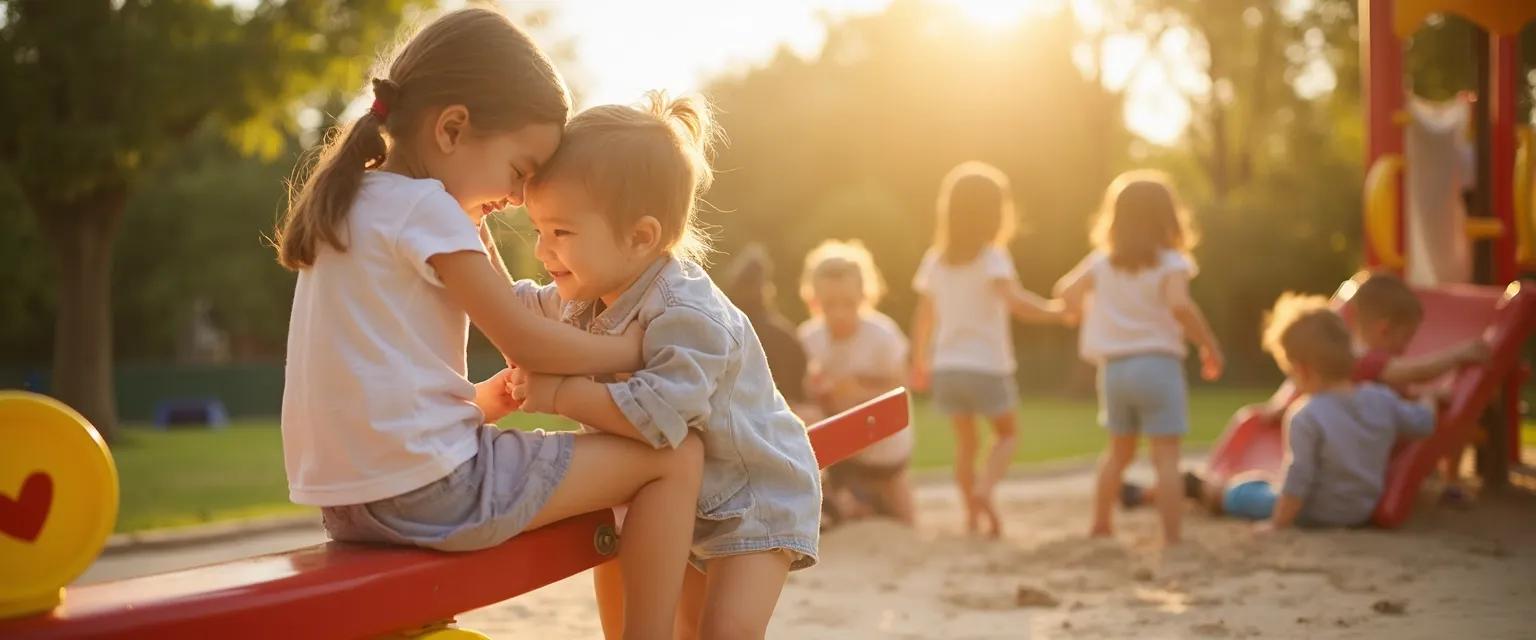7 Playground Games That Secretly Build Children's Emotional Intelligence
Remember when you were a kid and playground time was the highlight of your day? Those carefree moments weren't just about burning energy—they were secretly building emotional intelligence foundations that last a lifetime. Fostering emotional intelligence during childhood creates resilient, empathetic adults who navigate life's complexities with grace. The playground offers the perfect laboratory for this development: low-pressure, high-fun environments where children naturally explore their emotional landscape.
Research shows that children who develop strong emotional intelligence early demonstrate better academic performance, healthier relationships, and improved mental health throughout life. The beauty of playful learning approaches is how they transform complex emotional concepts into accessible experiences. When children engage in play, their brains are primed for learning—making emotional lessons stick without feeling like work.
Neuroscience supports this approach. Play activates multiple brain regions simultaneously, creating neural pathways that connect emotional centers with cognitive processing areas. This integration is the foundation of emotional intelligence. Let's explore seven simple playground games that secretly work wonders for fostering emotional intelligence in children.
7 Playground Games for Fostering Emotional Intelligence
Recognition Games
1. Emotion Charades: Children take turns acting out different feelings while others guess. This game builds emotional vocabulary and facial expression recognition—core components when fostering emotional intelligence. To play, simply write emotions on cards (happy, sad, frustrated, excited) and have kids draw and perform them.
2. Feeling Freeze Tag: A twist on classic freeze tag where the "tagger" calls out an emotion when tagging someone. The tagged child must freeze in a pose representing that feeling until another player "unfreezes" them by naming the emotion correctly. This reinforces emotional awareness techniques through physical movement.
3. Mirror, Mirror: Partners face each other and take turns being the "leader," expressing emotions that the "mirror" must replicate exactly. This builds facial recognition skills essential for fostering emotional intelligence in social settings.
Empathy Games
4. Teamwork Obstacle Course: Create a simple playground obstacle course that requires pairs to complete together—one partner blindfolded, the other guiding with words only. This builds trust, communication, and perspective-taking abilities.
5. Feelings Hopscotch: Draw a hopscotch grid where each square represents an emotion. When children land on a square, they share a time they felt that emotion and how they handled it. This normalizes emotional discussions while fostering emotional intelligence through shared experiences.
Regulation Games
6. Red Light, Green Light, Feelings: Instead of just stopping and going, children move at different speeds based on emotions called out. "Excited" means run fast, "calm" means walk slowly, and "frustrated" might mean stomping. This teaches children to connect emotions with physical sensations and develop regulation skills.
7. Peace Path: Create a designated route on the playground where children in conflict walk together, stopping at marked points to: express feelings, listen to each other, brainstorm solutions, and agree on next steps. This structured approach to conflict resolution techniques gives children a concrete tool for managing disagreements.
Maximizing the Impact of Emotional Intelligence Games
The magic of these games lies in how they naturally integrate emotional learning into fun activities. To enhance their effectiveness when fostering emotional intelligence, adults should adopt a facilitative rather than directive approach. Instead of correcting or instructing, ask open-ended questions: "How did you know Sarah was feeling disappointed?" or "What helped your team succeed in that challenge?"
These games can be adapted for different age groups. For younger children (3-5), focus on basic emotion recognition. For older children (6-9), introduce more nuanced emotions and complex scenarios. Pre-teens benefit from games that address social dynamics and peer relationships.
You'll know your efforts in fostering emotional intelligence are working when you observe children spontaneously using emotion words, showing concern for others' feelings, or applying conflict resolution strategies independently. Look for moments when children pause before reacting or express empathy without prompting.
Simple prompts can deepen these experiences: "I noticed you took a deep breath when you felt frustrated—that was great self-control!" or "How do you think Jamie felt when you shared your toy?" These observations reinforce emotional intelligence concepts without lecturing.
The playground provides the perfect setting for fostering emotional intelligence naturally. Through these seven simple games, children develop crucial emotional skills that will serve them throughout life—all while having the time of their lives. The best emotional education doesn't feel like learning at all—it feels like play.




